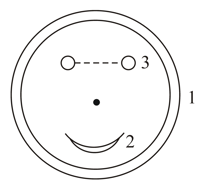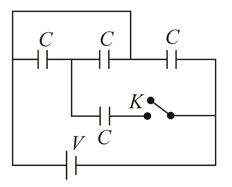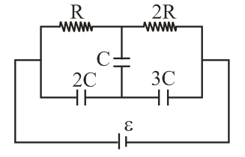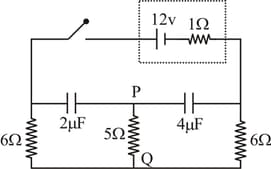Embibe Experts Solutions for Chapter: Electrostatics, Exercise 2: Level 2
Embibe Experts Physics Solutions for Exercise - Embibe Experts Solutions for Chapter: Electrostatics, Exercise 2: Level 2
Attempt the practice questions on Chapter 13: Electrostatics, Exercise 2: Level 2 with hints and solutions to strengthen your understanding. Physics Crash Course JEE Main solutions are prepared by Experienced Embibe Experts.
Questions from Embibe Experts Solutions for Chapter: Electrostatics, Exercise 2: Level 2 with Hints & Solutions
An electric field is given by . Find the work done (in ) in moving a charge from to
The arrangement is shown consists of three elements.
a. A thin rod of charge that forms a full circle of radius
b. A second thin rod of charge that forms a circular arc of radius and concentric with the full circle, subtending an angle of at the centre of the full circle.
c. An electric dipole with a dipole moment that is perpendicular to a radial line and has magnitude
Find the net electric potential in volts at the centre.

The point charges and are put on the vertices of an equilateral triangle of side Find the work done by some external force in increasing the separation to (in joules).
A parallel plate capacitor is to be constructed which can store charge at . The minimum plate area of the capacitor is required to be when space between the plates has air. If a dielectric of constant is used between the plates, the minimum plate area required to make such a capacitor is . The breakdown field for the dielectric is times that of air. Find
Find the amount by which the total energy stored in the capacitor (in ) will increase in the circuit shown in the figure after the switch is closed. Consider all capacitors are of capacitance and battery voltage is .

For section of a circuit shown in figure, , and the potential difference . Charge on capacitor is:

Find the charge (in ) on the capacitor in the figure shown. Internal resistance of a source is to be neglected. (Take : )

In the circuit shown in figure, the capacitors are initially uncharged. The current through resistor just after closing the switch is,

